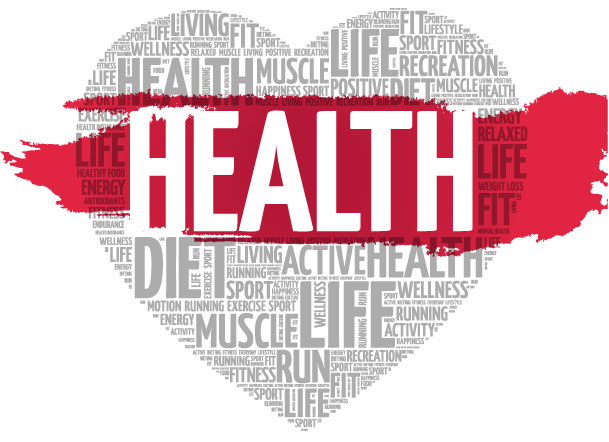HOW TO REDUCE YOUR HEART DISEASE RISK
- Choose a Heart Healthy Lifestyle.
- Engage in regular moderate aerobic exercise for at least 30 minutes five days a week or more vigorous workouts at least 20 minutes three times a week. (Check out our blog post Exercise Leads to a Healthy Heart)
- Adopt a diet low in salt, sugar, saturated and trans fats and high in unsaturated fats (fish, avocado, etc.) like the Mediterranean Diet. Check out our blog posts on Salt and Ways to limit saturated and trans fats in your diet.
- Maintain a normal body weight with caloric adjustment.
- Take fish oil supplements.
- Avoid smoking and recreational drug use.
- Imbibe no more than ½ to 1 alcoholic beverage per day. (One drink is either 12 ounces of beer, 5 ounces of wine or 1.5 ounces of 80-proof spirits.)

- Know and review your risk factors with a trusted physician.
- Your physician may recommend medications to control cholesterol, hypertension and diabetes.
- High-risk individuals should consider taking a daily aspirin.
- Avoid hormone replacement unless you have severe menopausal symptoms.
- In selected cases, it may be necessary to conduct non-invasive or even invasive tests to determine the nature and severity of the heart disease.
- Sometimes angioplasty/stenting or even bypass surgery may be needed if you have severe and symptomatic arterial blockage.
- Learn CPR. (Check out our blog post on CPR.)
- And as Dr. P.K. Shah always recommends, CHOOSE YOUR PARENTS WISELY!
For more tips on reducing your risk of heart disease check out our blog posts on Five Daily Heart Healthy Habits and Seven Ways to Keep Your Heart Healthy.
COMMON RISK FACTORS FOR HEART DISEASE
Age
Heart disease can occur at any age. However, four out of five people who die from coronary heart disease are aged 65 or older. The risk of stroke doubles with each decade after the age of 55. Check out our blog posts on The Risks of Mid-Life Weight Gain and how Aerobic Exercise Can Improve an Aging Heart.
Gender
Men and women are equally at risk for heart disease, but women tend to get coronary artery disease an average of 10 years later than men. The risk for women increases as they approach menopause and continues to rise as they get older. Death rates from heart disease and stroke for women are twice as high as those for all forms of cancer. Check out our blog post on Heart Attack: Men vs. Women.
Family History (Heredity)
Presence of heart disease in a parent or sibling, especially at a young age, increases your risk of developing heart disease.
Smoking
Smokers are twice as likely to suffer heart attacks as non-smokers, and they are more likely to die as a result. Smoking is also linked to increased risk of stroke. The nicotine and carbon monoxide in tobacco smoke damages the cardiovascular system. New research has shown that even an occasional cigarette can be dangerous. A recent study found that even one cigarette a day can increase a man’s risk for heart disease by 48% and for stroke by 25%. For women, a single daily cigarette increases the risk for heart disease by 57% and for stroke by 31%. 46 million Americans (25 million men and 21 million women) smoke. Women who smoke and take the oral contraceptive pill are at particularly high risk of heart disease and stroke. Secondhand smoke is also a danger. Check out our blog post on Smoking and Heart Disease.
Cholesterol
The higher the blood cholesterol level, the higher the risk of coronary heart disease, particularly if it is combined with any of the other risk factors. Diet is one cause of high cholesterol – others are age, sex and family history. High levels (over 100 mg/dl) of LDL (low-density lipoprotein), or “bad cholesterol”, are dangerous, and low levels (under 40 mg/dl in men and under 55 mg/dl in women) of HDL (high-density lipoprotein), or “good cholesterol”, increase the risk of heart disease and stroke. High levels (over 150 mg/dl) of triglycerides (another type of fat), in some, may also increase the risk of heart attack and stroke. Nearly 40 million Americans have high cholesterol levels.
High Blood Pressure
High blood pressure (over 130/80 mmHg) increases the risk of heart attack, stroke, aneurysm, and kidney damage. When combined with obesity, smoking, high cholesterol or diabetes, the risk increases several times. High blood pressure can be a problem in women who are pregnant or are taking high-dose types of oral contraceptive pill. 72 million Americans over age 20 have high blood pressure.
Physical Inactivity
Failure to exercise (walking or doing other moderate activities for at least 30 minutes five days a week or more vigorous workouts at least 20 minutes three times a week) can contribute to an increased risk of coronary heart disease as physical activity helps control weight, cholesterol levels, diabetes and, in some cases, can help lower blood pressure. Check out our blog post on how Aerobic Exercise Can Improve an Aging Heart.
Obesity
People who are overweight are more likely to develop heart disease and stroke, even if they have none of the other risk factors. Excess weight causes extra strain on the heart; influences blood pressure, cholesterol and levels of other blood fats – including triglycerides; and increases the risk of developing diabetes. According to the Centers for Disease Control and Prevention, 37.9% of American adults aged 20 and over are obese, and 70.7% of American adults aged 20 and over are overweight (includes obesity). Childhood obesity is also a growing problem with 20.6% of adolescents aged 12-19 years, 17.4% of children aged 6-11 years and 9.4% of children aged 2-5 years being obese. Check out our blog posts on Childhood Obesity, the dangers of Belly Fat and The Risks of Mid-Life Weight Gain.
Alcohol
A small amount of regular alcohol consumption (1/2 to 1 drink per day for women and 1-2 drinks per day for men) can reduce risk of heart disease. However, drinking an average of more than one drink a day for women or more than two drinks a day for men increases the risk of heart disease and stroke because of the effect on blood pressure, weight and levels of triglycerides – a type of fat carried in the blood. Binge drinking is particularly dangerous. One drink is either 12 ounces of beer, 5 ounces of wine or 1.5 ounces of 80-proof spirits.
Drug Abuse
The use of certain drugs, particularly cocaine and amphetamines, has been linked to heart disease and stroke. Cocaine can cause abnormal heartbeat which can be fatal while heroin and opiates can cause lung failure. Injecting drugs can cause an infection of the heart or blood vessels.
Diabetes
The condition seriously increases the risk of developing cardiovascular disease, even if glucose levels are under control. More than 80% of diabetes sufferers die of some form of heart or blood vessel disease.
Previous Medical History
People who have had a previous heart attack or stroke are more likely than others to suffer further events.
Stress, Depression, Anger/Hostility
Stress, depression, and negative emotions have also been linked to an increased risk of heart disease.







